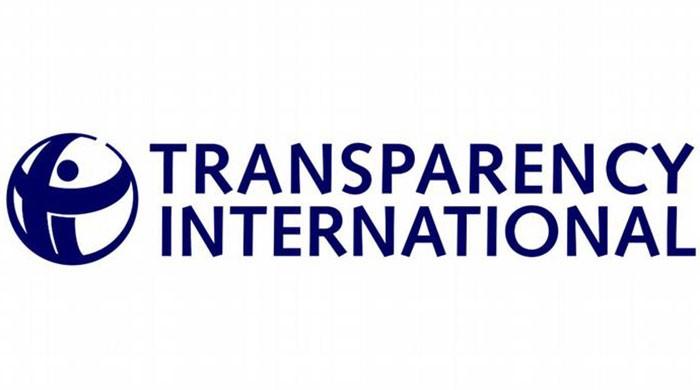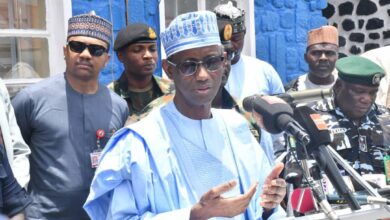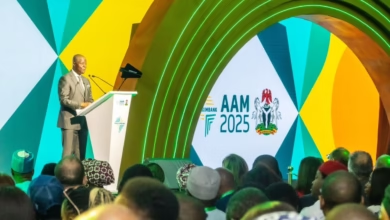
The Transparency International (TI) last week exposed its marked biased and less ultraistic disposition against Nigeria. It returned a damning report on the anti-corruption war by the government of President Muhammadu Buhari, which rattled bookmakers across the globe who, hitherto, agreed that the war on corruption by the President government has been result oriented.
TI, from indications, played the ostrich, putting only into reckoning incorrect perceptions and views by critics as expressed in local newspapers as yardstick for gauging the effects of the war against corruption in Nigeria. The NGO in the process shut its eyes on the integrity of the Nigerian President, his incorruptible disposition to governance, his time-tested policies aimed towards stamping out
corruption and the visible gains, which his fight against corruption has so far recorded in many areas.
In its report, the TI claimed that the perception of corruption in Nigeria had worsened between 2016 and 2017. Its report placed Nigeria 148 against 180 countries assessed in 2017 on the perception of corruption in the annual Corruption Perception Index, CPI, thus creating a buzz against established facts, while many viewed the report as grossly incorrect.
On the contrary, Nigeria has been doing well in majority areas of Report on fight against corruption except one. For instance, in all of the nine categories of the evaluation, Nigeria fell back in only one, performing slightly better in some and maintaining stability in others.
The index, published last week Wednesday, showed that out of 100 points signaling maximum transparency on corruption war, Nigeria scored 27 points. In the 2016 Index, Nigeria was ranked 136th out of 176 countries with a score of 28. Nigeria’s score also slightly improved from 26 to 28 between 2015 and 2016.
In contrast to TI report, Nigeria had improved significantly in key indexes between 2016 and 2017, taking into reckoning the Bertelsmann Foundation Transformation Index which gave Nigeria 5-point improvement; African Development Bank Country Policy and Institutional Assessment, 2-point improvement; 1-point improvement in the World Justice Project Rule of law Index Expert Survey and World Economic Forum Executive Opinion respectively.
Also in the 2016 World Justice Project Rule of Law Index, Nigeria and Burkina Faso were the biggest movers among the 18 countries indexed in the region, climbing 11 and 10 spots respectively.
Findings have also revealed that Nigeria remained stable in the following indexes: World Bank Country Policy and Institutional Assessment, Global Insight Country Risk Ratings; PRS Group International Country Risk Guide and Varieties of Democracy Project. The only Index the country fell short was in the Economic Intelligence Unit Country Risk Service, on which basis is the sole reason for Nigeria’s decline in the overall Transparency International’s Corruption Perceptions Index of 2017.
Indeed, the TI faltered by its failure to take into consideration, immediate efforts by the government to pull Nigeria out of the jaw of corruption in 2015, starting with committed implementation of Treasury Single Account (TSA). In less than two years, TSA has put the sum of almost N8 trillion in federation account. In the past, government officials would have pilfered such humongous amount.
The TI again failed to put into consideration huge amount of stolen funds and ill-gotten properties recovered by the government from officials of past administration, improvement in revenue collection, use of biometrics to stop stealing in government and which had exposed over 50, 000 ghost workers within the Federal Service and recovery of N120 billion, payment of backlog of salaries owed government workers, bail-out the government offered to state at critical times, and many
more.
The principle of probity and accountability put in place by the government made, had at a point, made an agency like the Joint Admissions and Matriculation Board (JAMB), to remitted not less than N7.8 billion unspent funds to the government’s account in 2017 alone, a stark contrast to the paltry N3 million that was the highest remitted by the agency in the past.
It is a thing of regret that the TI was silent on efforts by the Economic and Financial Crimes Commission (EFCC) to uncovered more than N13 billion naira cash in local, foreign currencies in an apartment in Ikoyi, Lagos State, while it ensured that the sum $43.5m stolen from the government was forfeited.
Succinctly, a government that fought hard to roll back economic recession which overwhelmed Nigeria all through 2015, the year of take over of government by President Buhari, putting in place robust measures for ensuring economic prosperity for the country should not have been accused of failing in the fight against corruption. It is the same government that has set aside a whooping sum of N1.3trillion for capital expenditure in 2016, a historic highest budget spend on
capital projects.
Notwithstanding, the government of President Buhari by dint of right measures, caused a revolution in agriculture, which has been piloting its economic diversification agenda. Suddenly, Nigeria stopped being a major importer of rice, as the CBN’s Anchor Borrowers Programme raised millions of local farmers to grow rice to become instant millionaires. The initiative has placed Nigeria in the right index of rice exporters
in the world.
In all, Nigeria is now recognised as one of the top 10 most improved economies in the world by the World Bank. The country has also moved up 24 places to 145th position in the World Bank’s ‘Ease of Doing Business’ going by a Report. The report indicated that Nigeria had moved up by 24 points from the 169th position in the 2017 ranking and also the 170th position in the 2016 ranking to 145 in the World Bank’s 2018 report. Not all, the World Bank also admitted that Nigeria made the greatest stride on improving access to Getting Credit. Also on
Paying Taxes ranking, Nigeria moved from the 182nd position in 2017 to 171 in 2018 and on Enforcing Contracts, it moved from 139th to 96th position in 2018.
Seemingly, the TI played to the gallery in an attempt to pummel the government of President Muhammadu Buhari in a pre-election year. It is however, instructive that its efforts to achieve the sinister objective failed to score a point, this time. The TI is advised to move to another clime for its blackmailing business next time.
By Idowu Samuel
A journalist and public affairs analyst from Abuja





